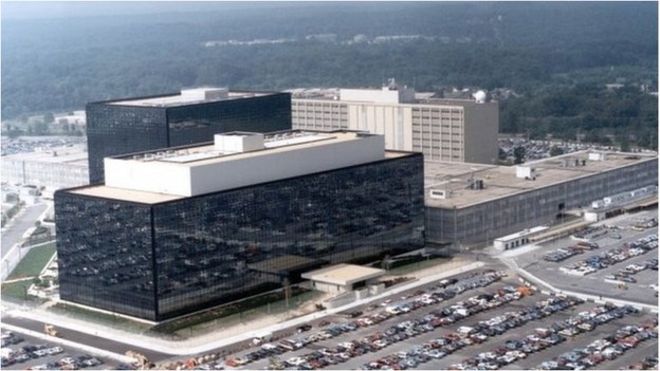Damascus Center for Human Rights Studies
Casualties Report for April 2015
More than Half of the Victims were Killed by Indiscriminate Shelling
The Damascus Center for Human Rights Studies (DCHRS) is an independent human rights NGO that monitors the human rights situation in Syria. In its thematic reports, the DCHRS issues a first indication of the casualties that it has managed to document to date. Through monitors who operate within Syria, DCHRS gathers information from across the country. However, the center’s access to information from Kurdish-held and ISIS-held territories is limited. The DCHRS is also unable to obtain accurate records on the number of Syrian regime forces killed in action, because these figures are not published by the regime.
In April 2015, the DCHRS documented a provisional total of 1,617 casualties. 77% of those killed were civilians. The remaining 23% belonged to one of the fighting factions. Women and children respectively made up 9% and 14% of the total number of war casualties.
The most common cause of death was the shelling of residential areas, which caused the death of 945 people in April. Sniper fire and indiscriminate shooting killed 30, whereas 103 people were tortured to death in the detention centers of the Syrian government authorities. A further 35 persons were murdered in extrajudicial killings. Armed groups such as ISIS killed 31, whilst the source of the bullets that killed another 11 persons cannot be attributed to a particular group. 32 died from starvation, which is a direct result of the siege that the Syrian regime imposes in many areas. Various explosions killed 64 people. Finally, DCHRS didn’t documents any victims by the U.S.-led international coalition’s airstrikes in April 2015.
Out of all the Syrian regions, most deaths were recorded in the Idlib and its suburb province. Violent clashes between regime forces and various armed groups have engulfed large parts of Idlib as well as the surrounding countryside. The Syrian regime has also targeted people in this area with barrel bombs. The total number of casualties who were killed in Idlib and its suburbs were 419 people. 81% of those were civilians (338 people), and 326 of whom were killed by indiscriminate shelling. In addition to that, Aleppo followed in the number of casualties, where 411 people were killed. 80% of those were civilians (327 people), and 256 of whom were killed by indiscriminate shelling in the month of April 2015.
Through analysis of the casualties, it is possible to obtain a general picture of the human rights situation in Syria. Two observations indicate that the Syrian regime continues to actively target civilians. First, 77% of the total casualties are civilians. Secondly, about more than half (59%) of the casualties were the results of shelling, missiles, barrel bombs, and airstrikes. These methods of warfare belong exclusively to the regime and are associated with a high number of civilian deaths. The evidence collected by DCHRS points to grievous violations of international human rights law and international humanitarian law. Torture and extrajudicial killings constitute war crimes and crimes against humanity.
The DCHRS advocates for the protection of Syrian civilians. As a member of the International Coalition for the Responsibility to Protect (ICRtoP), the DCHRS calls upon the international community to fulfill its Responsibility to Protect with regard to Syria. DCHRS also appeals to medical and humanitarian organizations to provide relief to ease the suffering of the Syrian people inside Syria and abroad.
Damascus Center for Human Rights Studies (DCHRS)
May 1, 2015
For more information, please contact:
Dr. Radwan Ziadeh
Executive Director
Tel: +1 (571) 205-3590
Email: radwan.ziadeh@dchrs.org
Mr. Mojahed Ghadban
Communications Officer.
Tel: +1 (479) 799-8115
Email: info@dchrs.org
The Damasus Center for Human Rights Studies (DCHRS) is an independent human rights NGO that monitors the human rights situation in Syria. Established in 2005, it was initially located in the Syrian capital of Damascus. The mission of DCHRS is to promote respect for human rights in Syria.
DCHRS engages in numerous documentation projects. These projects include daily casualty reports, reports on particular massacres, and the reporting and documenting of other human rights violations. DCHRS has also works to lobby and advocate for Syrian human rights, and aims to draw the world’s attention to the deteriorating human rights situation in Syria.
Since the beginning of the Syrian revolution, the center has expanded its activities, working to coordinate and communicate with activists. At this time, the center began documenting the daily violations committed by Syrian regime forces, many of which can be classified as crimes against humanity or war crimes. As the conflict developed, DCHRS expanded its monitoring activities to all armed groups.
Human rights violations recorded by DCHRS have included (but are not limited to): extrajudicial killings, massacres, arbitrary detention, enforced disappearances, rape, and torture. DCHRS has opened local offices in Syria in order to document evidence concerning human rights violations on the ground. These reports have been submitted by DCHRS to many international and regional human rights organizations, as well as with the Independent International Commission of Inquiry on the Syrian Arab Republic (established by the UN).
DCHRS recognizes and adheres to all pertinent international human rights agreements and declarations issued by the UN. DCHRS is also a member of the following international networks:
- International Federation for Human Rights (FIDH)
- Euro-Mediterranean Human Rights Network (EMHRN)
- NGO Coalition for the international Criminal Court
- International Coalition for the Responsibility to Protect (ICRtoP)
- International Coalition of Sites of Conscience (ICSC)

